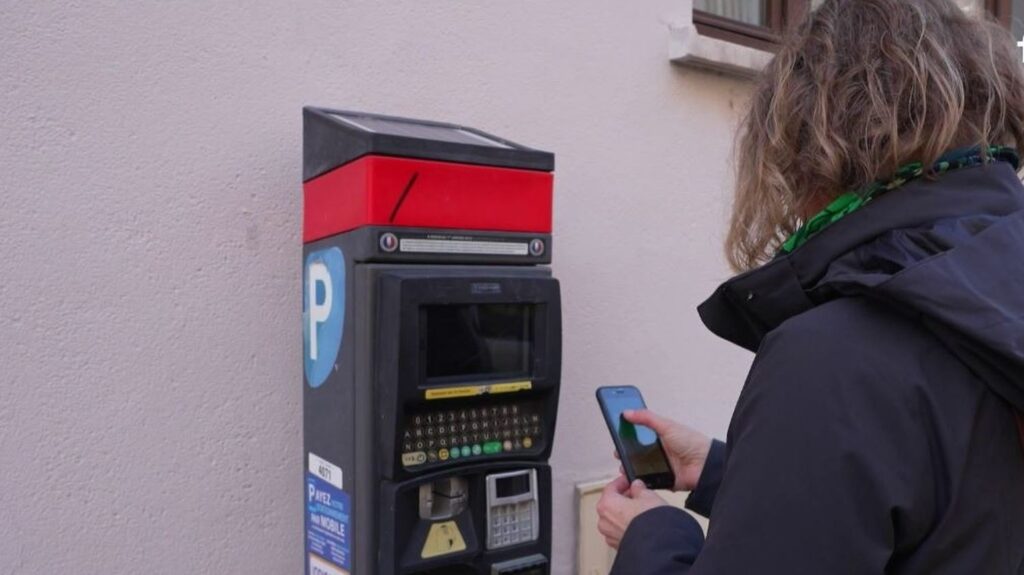Published
Reading time: 2min – video: 2min
2 minutes
Parking payment applications are multiplying, but their additional costs are annoying more and more motorists. Between lack of transparency, paid options by default and local controversies, some elected officials are now calling for a boycott of these services, although they are presented as more practical.
This text corresponds to part of the transcription of the report above. Click on the video to watch it in full.
Over the past ten years, they have multiplied, establishing themselves in most French cities: payment applications parking via smartphonewhich pride themselves on making life easier for motorists. However, some users, like in Strasbourg (Bas-Rhin), remain attached to the good old parking meters. 3I tried once, but actually found out there were fees. So why pay more for an application when, by doing 20 meters, you put it on the machine?” asks a local resident.
More expensive parking via certain applications: this is what our test reveals. An hour in the city center of Strasbourg costs 4 euros on the EasyPark application, compared to 3.50 euros at the parking meter. Fifty cent service fees that most users don’t even notice. “I didn’t pay attention to my bill. It’s true that most of the time, it’s an expense report for my work.”says a Strasbourg resident.
For another user, these differences should not exist: “Normally, for parking, you pay for the parking. The application, if it is free, it must be free until the end.”
In some cities like Strasbourg, an option allows regular users to avoid these fees, provided they know it exists and understand how to activate it. Transparency deemed insufficient by the 40 million motorists association, which denounces paid options activated by default, driving up the bill.
Pierre Chasseray, general delegate, specifies: “On average, we are seeing a 15% increase in prices. On prices that are already extremely expensive, this is not normal. It is unfair, it is unacceptable.”
This overbilling has already caused several controversies, notably in Poitiers (Vienna), where EasyPark was established after having bought a competing operator. The company nevertheless defends its costs, believing it offers more flexibility to users, who remain free to use the parking meters. “It’s like electronic toll collection: you can pay at the barrier or choose a more flexible, optional and billed system,” explains Olivier Koch, France director of EasyPark.
Faced with these practices, certain elected officials, who claim to have been presented with a fait accompli, are now calling for a boycott of paid applications.

/2025/11/19/gnffnn-691dd97eb4058253340634.jpg)

